The United Nations defines disaster as a serious disruption of the functioning of a community or society involving widespread human, material, economic or environmental losses and impacts, which exceeds the ability of the affected community or society to cope using its own resources. There are indications that in recent years disasters such as super typhoons, floods, droughts, wildfires, etc. have become common occurrences globally. In 2017 alone, 335 natural disasters affected over 95.6 million people, killing an additional 9,697 and costing a total of $335 billion. In 2018, The European Forest Fire Information System (EFFIS), reported that wildfires have heavily affected Sweden, UK, Ireland, Finland and Latvia; countries in which wildfires have not been a concern in past years. Similarly, flooding has been occurring in places where it was not observed before such as regions around the Dead Sea in Jordan.
Disaster and crisis management have become more important than ever with both the public and private sectors pitching in solutions to stay ahead of the problem. In Europe, here is our list of 10 startups that are currently tackling disasters:
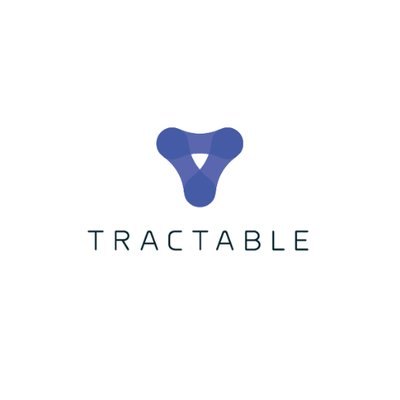 Tractable develops AI solutions for accidents and disaster recovery. Its AI looks at damages and predicts repair costs. This allows for faster settlement of claims and restoration of livelihood. Tractable’s AI can be used on any visual data and can feed from satellite, drone or smartphone imagery. Instantaneous appraisals are drawn from visual data and can even be integrated with repairers, enabling fast, accurate repairs. For their disaster AI, Tractable works with both data providers and public institutions such as disaster relief, government agencies, and NGOs.
Tractable develops AI solutions for accidents and disaster recovery. Its AI looks at damages and predicts repair costs. This allows for faster settlement of claims and restoration of livelihood. Tractable’s AI can be used on any visual data and can feed from satellite, drone or smartphone imagery. Instantaneous appraisals are drawn from visual data and can even be integrated with repairers, enabling fast, accurate repairs. For their disaster AI, Tractable works with both data providers and public institutions such as disaster relief, government agencies, and NGOs.
Tractable was founded in 2014, in London, by a team of researchers from Oxford and Cambridge. In July 2018, it closed $25 million Series B funding round led by Insight Venture Partners. It had previously raised $8 million Series A in January 2017 and a $1.9 million in a seed round in June 2015. Previous investors include Silicon Valley-based 415, Ignition Partners and Zetta Venture Partners.
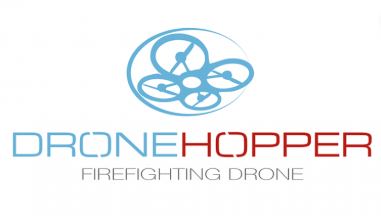 Drone Hopper designs, manufactures and operates heavy-duty, multi-rotor unmanned drones that are intended to be used mainly for wildfires, urban firefighting and agricultural operations. Founded in 2016 and based out of Madrid, Spain, Drone Hopper’s drones follow a common layout called the Hopper Platform, which allows drones with 600 litres of water capacity run 24/7 operations. The drones are resistant to strong winds owing to their state-of-the-art proprietary stability system. Heavy-duty semi-autonomous multi-rotor drones are used to create firewalls and lines of defence that protect communities and properties. Since the drones are unmanned, human lives are not at risk. Their patented water mist jet creation technology results in accurate and targeted release, efficiently protecting more area per volume of water used. The drones also allow for night operation and fast recharge capability.
Drone Hopper designs, manufactures and operates heavy-duty, multi-rotor unmanned drones that are intended to be used mainly for wildfires, urban firefighting and agricultural operations. Founded in 2016 and based out of Madrid, Spain, Drone Hopper’s drones follow a common layout called the Hopper Platform, which allows drones with 600 litres of water capacity run 24/7 operations. The drones are resistant to strong winds owing to their state-of-the-art proprietary stability system. Heavy-duty semi-autonomous multi-rotor drones are used to create firewalls and lines of defence that protect communities and properties. Since the drones are unmanned, human lives are not at risk. Their patented water mist jet creation technology results in accurate and targeted release, efficiently protecting more area per volume of water used. The drones also allow for night operation and fast recharge capability.
 I-React is an innovation project funded by the European Commission, under the Horizon 2020 initiative. Based in Turin and founded in 2016, I-React develops solutions to build a more secure and disaster-resilient society through the integration and modelling of data coming from multiple sources. Information from European monitoring systems, earth observations, historical information and weather forecasts is combined with data gathered by new technological developments created by I-React. These include a mobile app and a social media analysis tool to account for real-time crowdsourced information, drones for improved mapping and wearables for improved positioning. This approach empowers stakeholders in the prevention and management of disasters. Citizens are enjoined to report first-hand information, policymakers will be supported in the decision-making process, and first responders will be equipped with essential tools for early warning and response.
I-React is an innovation project funded by the European Commission, under the Horizon 2020 initiative. Based in Turin and founded in 2016, I-React develops solutions to build a more secure and disaster-resilient society through the integration and modelling of data coming from multiple sources. Information from European monitoring systems, earth observations, historical information and weather forecasts is combined with data gathered by new technological developments created by I-React. These include a mobile app and a social media analysis tool to account for real-time crowdsourced information, drones for improved mapping and wearables for improved positioning. This approach empowers stakeholders in the prevention and management of disasters. Citizens are enjoined to report first-hand information, policymakers will be supported in the decision-making process, and first responders will be equipped with essential tools for early warning and response.
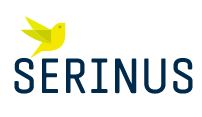 Serinus provides alarms and crisis management solutions. Its web-based solutions trigger alerts to inform and coordinate all key players and keep track of critical situations, quickly and easily. Serinus’ smart event communication platform is available in three versions – a SaaS solution that can be operated regardless of infrastructure, an on-premises version that allows for a full integration into existing system landscape and a hybrid solution that combines the benefits of the cloud and server-based solutions. As a result, Serinus solutions have the flexibility of using cloud resources for alerts via voice call, SMS, mobile app, email or fax and fast and easy connection of subsystems, ICT components, and IoT sensors to the platform via local gateways.
Serinus provides alarms and crisis management solutions. Its web-based solutions trigger alerts to inform and coordinate all key players and keep track of critical situations, quickly and easily. Serinus’ smart event communication platform is available in three versions – a SaaS solution that can be operated regardless of infrastructure, an on-premises version that allows for a full integration into existing system landscape and a hybrid solution that combines the benefits of the cloud and server-based solutions. As a result, Serinus solutions have the flexibility of using cloud resources for alerts via voice call, SMS, mobile app, email or fax and fast and easy connection of subsystems, ICT components, and IoT sensors to the platform via local gateways.
Serinus solutions have numerous applications including alarm scenarios, crisis management and human-machine interactions. These applications are used in worst-case scenarios like fires, floods, major infrastructural damage situations, cyberattacks and even monitoring of technical building infrastructure from data centers to the manufacturing industry to public institutions, nursing homes.
Founded in 2017 and based out of Hagen, Germany, Serinus raised €1 million from Creathor Ventures in March 2019.
 VanderSat is a provider of satellite-observed water and temperature data and services. With its proprietary satellite technology, VanderSat works with global organizations to solve water-related challenges. VanderSat applies satellite remote sensing by combining passive microwave data obtained from different satellites resulting in accurate, high-resolution images of soil moisture, at any place on earth, every day. This reveals a data set that can be used to retrieve crucial information about the vulnerability of water and food resources at field level.
VanderSat is a provider of satellite-observed water and temperature data and services. With its proprietary satellite technology, VanderSat works with global organizations to solve water-related challenges. VanderSat applies satellite remote sensing by combining passive microwave data obtained from different satellites resulting in accurate, high-resolution images of soil moisture, at any place on earth, every day. This reveals a data set that can be used to retrieve crucial information about the vulnerability of water and food resources at field level.
VanderSat supports global humanitarian and aid programs in improving their abilities to better anticipate climate change induced natural catastrophes, such as those resulting from droughts and floods, and improve planning of humanitarian aid programs. Its water management solution, based on predictive and accurate measurement of soil moisture, provides detailed information on the vulnerability of water resources as well as predictors for both droughts and floods. It also conducts inundation monitoring for flooding insights with global data sets, on 10 x 10-meter area with 3-6 day observation interval even during cloud cover and darkness, when optical satellites do not work.
Based in Haarlem in the Netherlands, VanderSat was founded in 2015. It was part of the Horizon 2020 Water4Agri project that received a total of €1.3 million in funding. VanderSat counts Smart Re, BASF, Rabobank and the Dutch Water Authority among its various clients.
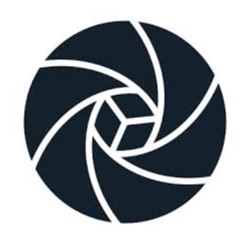 Orora Technologies is a developer of nanosatellites sent into space for early detection and monitoring of forest fires. The nanosatellite constellation equipped with multispectral imagers in the thermal infrared and visible light range combines a patent-pending CubeSat framework with a customized optical system and on-orbit pre-processing capabilities intending to deliver high-quality satellite images and create real-time information for wildfire detection and mapping, severe weather forecasting, and many other applications.
Orora Technologies is a developer of nanosatellites sent into space for early detection and monitoring of forest fires. The nanosatellite constellation equipped with multispectral imagers in the thermal infrared and visible light range combines a patent-pending CubeSat framework with a customized optical system and on-orbit pre-processing capabilities intending to deliver high-quality satellite images and create real-time information for wildfire detection and mapping, severe weather forecasting, and many other applications.
Ororatech is a spin-off of the MOVE-II CubeSat project at the Technical University of Munich (TUM) whose satellite technology is based on years of academic research. Founded in 2018 by the four space enthusiasts Thomas Grübler, Björn Stoffers, Florian Mauracher, and Rupert Amann, Ororatech is based in Munich. The founders were listed in the 2019 Forbes 30 under 30 for Tech. Ororatech has received a total of €230k in funding from European grants since its inception.
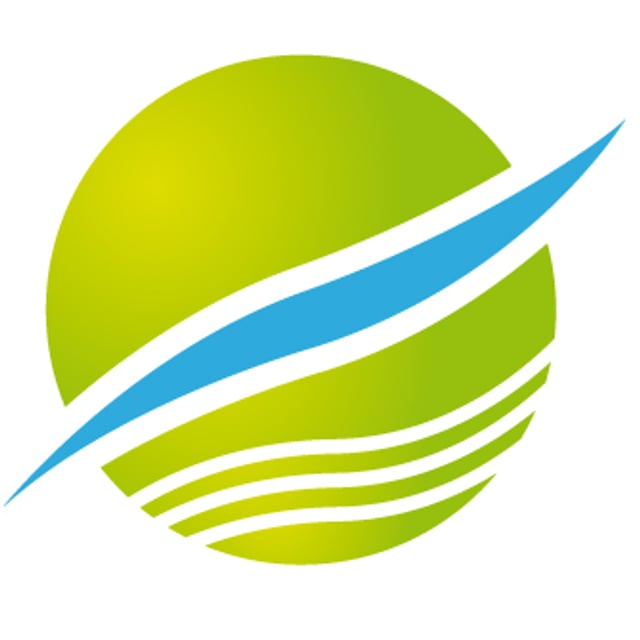 Tenevia uses image sensors to monitor water levels to mitigate the threat of flood. Its system deploys digital surveillance cameras along rivers in order to assess water levels, surface speed and flow. Unlike more traditional monitoring systems such as water gauges, the cameras are not below the water line. This enables users to follow and gather data during flood events which actually have little concrete information precisely at the moment of greatest need. By exploiting two fields of Artificial Intelligence (AI), computer vision (image analysis) and numerical modelling, Tenevia’s solutions offer access to new environmental measures and supply unseen information not just to help predict immediate threats of flooding, but also to gather data over longer periods in order to assist planners in making risk-sensitive decisions, as well as provide insurers with an accurate picture of events.
Tenevia uses image sensors to monitor water levels to mitigate the threat of flood. Its system deploys digital surveillance cameras along rivers in order to assess water levels, surface speed and flow. Unlike more traditional monitoring systems such as water gauges, the cameras are not below the water line. This enables users to follow and gather data during flood events which actually have little concrete information precisely at the moment of greatest need. By exploiting two fields of Artificial Intelligence (AI), computer vision (image analysis) and numerical modelling, Tenevia’s solutions offer access to new environmental measures and supply unseen information not just to help predict immediate threats of flooding, but also to gather data over longer periods in order to assist planners in making risk-sensitive decisions, as well as provide insurers with an accurate picture of events.
Tenevia was founded in 2012 and is based in Meylan in Grenoble, France. Since is inception, its monitoring solutions have been used all over France and also in two locations in Germany. In 2015, Tenevia received €1 million in financing from several sources including BPI France, EIT Climate KIC and business angels.
![]() Tsar AI by Opt/Net BV – Tsar AI is part of the OPTOSS AI product suite by Opt/Net BV, an Amsterdam-based startup founded in 2018. Through the use of geospatial Earth Observation Data provided by satellites, Tsar AI helps emergency and disaster response teams work quicker, smarter and more effectively. It allows for automated detection and quantification of all relevant changes even in all-weather conditions, regardless of cloud cover or time of day. Processing and analysis are automated and operator expertise can be saved, recycled and distributed massively. The technology also has applications for the defense and security market, where large-scale analyses of land and sea surface are required for timely detection of important developments.
Tsar AI by Opt/Net BV – Tsar AI is part of the OPTOSS AI product suite by Opt/Net BV, an Amsterdam-based startup founded in 2018. Through the use of geospatial Earth Observation Data provided by satellites, Tsar AI helps emergency and disaster response teams work quicker, smarter and more effectively. It allows for automated detection and quantification of all relevant changes even in all-weather conditions, regardless of cloud cover or time of day. Processing and analysis are automated and operator expertise can be saved, recycled and distributed massively. The technology also has applications for the defense and security market, where large-scale analyses of land and sea surface are required for timely detection of important developments.
The TSAR AI platform has gained traction both with the European Commission, winning European Space Agency’s Copernicus Emergency Management Challenge as well as the renowned IBM Watson XPrize competition. Opt/Net BV received a €500k pre-seed funding in August 2018 from private angel investors.
![]() World from Space is a startup based in Brno, Czech Republic and was founded in 2017 from the European Space Agency’s Business Incubation in Prague. Its key areas of interests are drought and vegetation monitoring from satellite data infrastructure and open data analysis. World from Space provide initial analysis, propose mitigation and adaptation measures as well as monitoring of results.
World from Space is a startup based in Brno, Czech Republic and was founded in 2017 from the European Space Agency’s Business Incubation in Prague. Its key areas of interests are drought and vegetation monitoring from satellite data infrastructure and open data analysis. World from Space provide initial analysis, propose mitigation and adaptation measures as well as monitoring of results.
Its drought measure solution aims to be the most beneficial satellite-based commercial drought assessment service for cities, regions, insurance companies and farmers in the EU. It intends to measure real impacts of drought on vegetation and predict the scope and velocity of upcoming droughts. It also has a smart cities monitoring solution that includes monitoring of urban greenery, urban heat island and wetness index.
![]() Tesselo is a Lisbon-based startup founded in 2017. It combines satellite imagery with AI to produce actionable spatial intelligence. Its sustainability solutions include real-time and country-scale mapping solutions which can classify tree species, measure and predict forest growth, monitor plantation harvests, detect pests, and estimate the risk or impact of forest fires and other natural disasters. Tesselo also provides insurance and certifications solution to help businesses develop adequate responses to natural hazards and give timely damage estimates after a disaster. The mapping layers obtained by its mapping technology can flag and expose environmental phenomena in near real time, from growing vegetation contacts with power lines to impact of forest fires on local habitat, within hours of occurrence.
Tesselo is a Lisbon-based startup founded in 2017. It combines satellite imagery with AI to produce actionable spatial intelligence. Its sustainability solutions include real-time and country-scale mapping solutions which can classify tree species, measure and predict forest growth, monitor plantation harvests, detect pests, and estimate the risk or impact of forest fires and other natural disasters. Tesselo also provides insurance and certifications solution to help businesses develop adequate responses to natural hazards and give timely damage estimates after a disaster. The mapping layers obtained by its mapping technology can flag and expose environmental phenomena in near real time, from growing vegetation contacts with power lines to impact of forest fires on local habitat, within hours of occurrence.
By the way: If you’re a corporate or investor looking for exciting startups in a specific market for a potential investment or acquisition, check out our Startup Sourcing Service!
Startups
via https://aiupnow.com
contact@bcurdy.com, Khareem Sudlow
